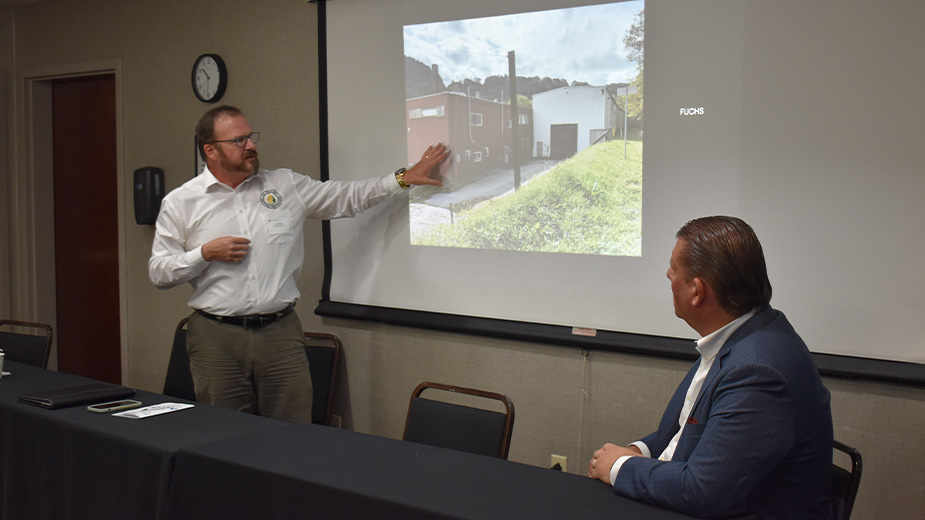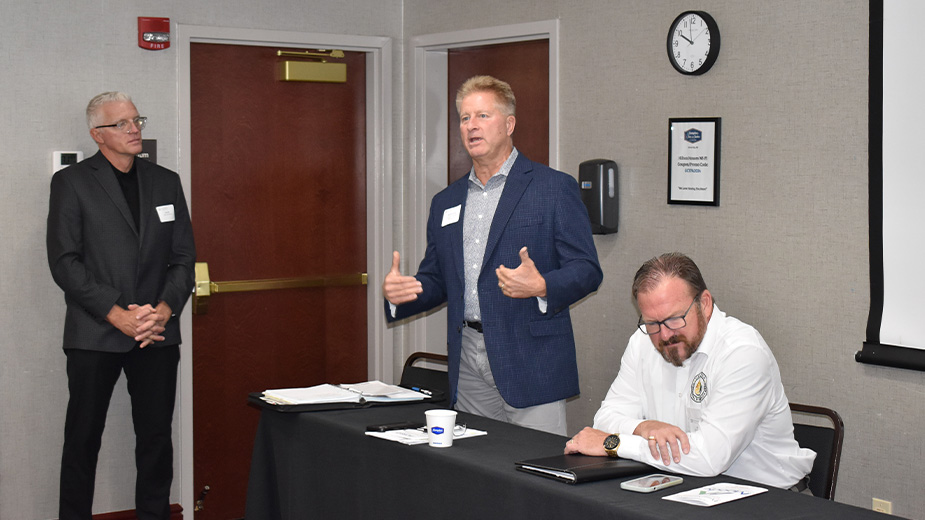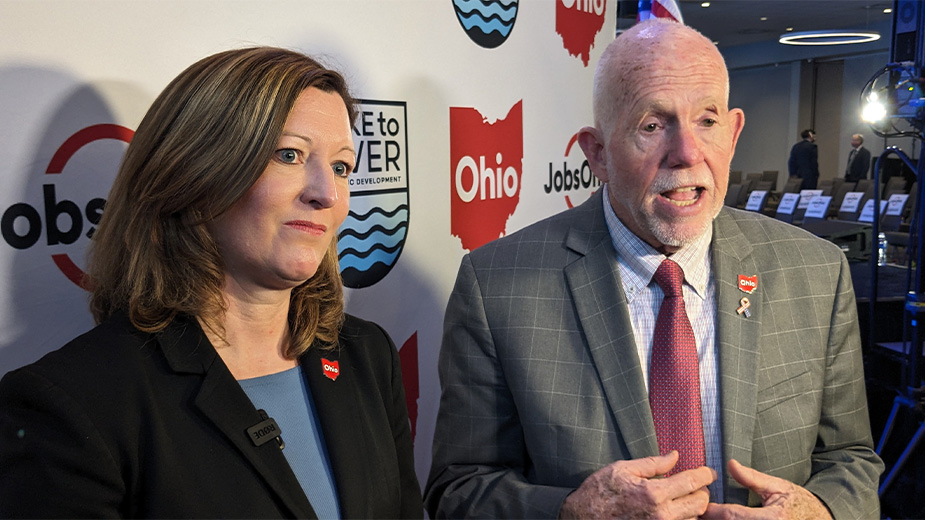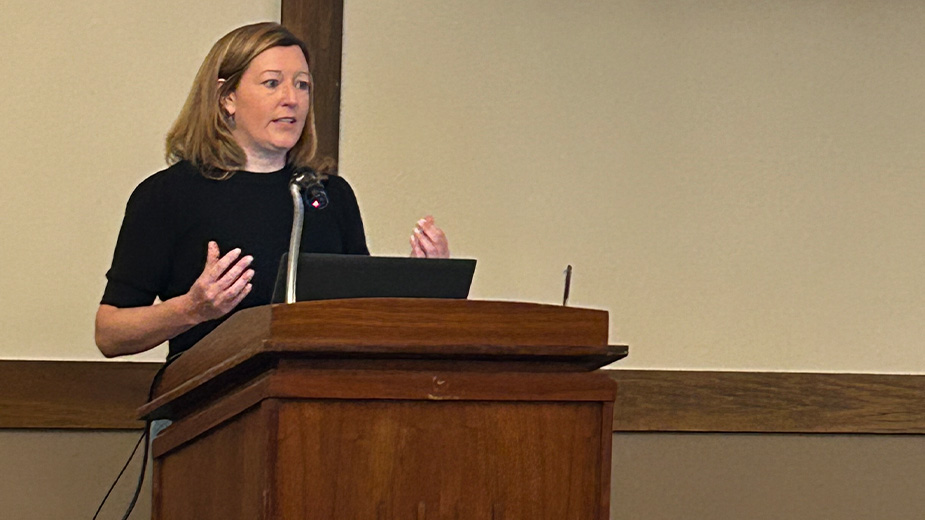Leaders Highlight Brownfield Successes in Mercer County
MERCER, Pa. – Panelists at the inaugural Mercer County Environmental Summit on Tuesday emphasized the potential of reclaiming brownfield sites and successes that have been achieved.
Hosted by Penn-Northwest Development Corporation with Moody & Associates, a Washington, Pa.-based environmental consulting firm with offices in Erie and Athens, the event assembled panels of commonwealth environmental officials, private sector developers and others.
While the task of purchasing and addressing environmental issues on a property can seem daunting, such projects represent opportunities not only for redevelopment of a brownfield property but also for establishing long-term economic development and community partnerships, said Jeff Walentosky, Moody’s president and CEO.
“As an environmental consultant, I’ve always taken great pleasure to see a project, especially a brownfield project, go from start to end, just to see that you may be starting with an idle property that was frankly just an eyesore to the community … and take that property to where there may be a new industry. Or maybe we developed something that looks great for the community and is beneficial for everyone,” he remarked.
The contributions that communities such as Mercer County made to the “birth and development of this nation” left “an industrial legacy” across a lot of those communities, according to Erin Wells, regional director at the Pennsylvania Department of Environmental Protection’s Northwest office. Local governments end up as “the remediator of last resort” for these properties.
“It’s really you folks in this room as project champions of your community who are going to do this work,” she said.
“We can partner together to preserve our green spaces and our farmlands by utilizing these already existing facilities,” many of which already have infrastructure, transportation and municipal services, said Kammy Halterman, program manager for the environmental cleanups and brownfield program in the DEP’s Northwest Regional Office. “We can partner to clean these contaminated sites up and return them into productive use that will ultimately create jobs, and folks are doing it in our Northwest region.”
Since Pennsylvania implemented Acts 2, 3 and 5 in 1995, the legislative package that established its voluntary cleanup program, 55 brownfield sites in Mercer County have been remediated and 15 are in progress now, she reported. Local examples include The Landing in Sharon and Hall Industries’ work at the former Cooper Bessemer plant in Grove City.
“You are doing this work in Mercer County,” Wells said. “I just encourage you to continue to collaborate, build on the momentum that you have, and don’t stop.”
Act 2 provided “an opportunity to have clear standards,” said attorney Russell Warner, senior partner at MacDonald, Illig, Jones & Britton LLP in Erie.
The Cooper site, which first began operating as a commercial property in 1897, had been neglected for years but now is nearly completely used, said Matthew Perry, a partner at Compliance Environmental Services in Hermitage.
“This site has a huge site history,” he remarked.
Formed in 1951, Greenville Reynolds Development Corp. now owns more than 1,100 acres of property, including 700 that can be developed, said Brad Gosser, executive director of Greenville Reynolds.
In recent years, after a deal fell through on a project at the former Damascus Steel property, which is in the process of being cleaned up, Greenville Reynolds Development Corp. shifted efforts to the former ELG scrap metal yard at Reynolds Industrial Park, Gosser said.
The development agency spent about $800,000 to remediate the ELG property, including digging 145 inches down and putting in all new topsoil, and constructed two 16,000-square-foot buildings designed to be built out for 108,000 square feet. Additionally, the stormwater management system was designed to accommodate the entire site.
One of the buildings now is occupied by Arrow Electric Inc., “a startup from one of our local entrepreneurs” that has doubled its employment every three or four years, said Rod Wilt, Penn-Northwest executive director.
“It’s been a real example of what we call economic gardening,” he said.

Jeff Kotula, president of the Washington County Chamber of Commerce, offered a couple of examples of his county’s redevelopment efforts.
Using funds from the county’s share of gaming facilities, the chamber was able to attract a partner to construct a 100,000-square-foot spec building on the site of a former glass plant on Interstate 70 that had been vacant for years and was “not only an eyesore but the first thing you saw when you came into Washington County,” he said.
He also talked about working with Sarris Candies in Canonsburg, which had purchased a company in the middle of Pennsylvania and had considered moving some operations there. The chamber worked to get some county funding and now is taking a 100,000-square-foot clean manufacturing space in Canonsburg.
“We find a lot of success in partnering with our local indigenous companies,” he said. Local companies also are showing interest in the new building at I-70.
“We’re going to be offering tours of this facility as part of our tourism efforts,” he said.
Among the projects the Oil Regional Alliance of Business, Industry & Tourism is working on is the site of a former industrial lubricants manufacturer in Emlenton, said John Phillips, president and CEO. The property is on the banks of the Allegheny River.
“There would be some soil remediation, but most of the contamination is really housed within the structure, which is above ground, so it makes it a little easier for us to be able to deal with that,” he said. Moody’s is confident the soil could be remediated to a residential standard, which would be a “game changer” for the site.
“All of a sudden, we have basically 3 1/2 acres of waterfront property,” he said.
Several speakers emphasized the importance of patience in the process, often taking several years, including quarterly groundwater samples to ensure successful remediation of the site.
Back when Warner joined his first large law firm, the attitude of the senior members of the firm was that DEP and the Environmental Protection Agency were the enemy, he recalled.
“They’re neither your best friend, nor are they your enemy,” he said. “They’re your strategic partner. Whether you like it or not, you’re going to have a long-term relationship with regulatory agencies in your fields. Make it a meaningful one, because you’re going to be together in a however happy of a marriage you want for the rest of your time in business.”
The chief concept to take away from the morning-long summit was the importance of creating partnerships “before, during and after there’s an environmental concern with your business or property that you own or may be acquiring,” Wilt said.
Pictured at top: From left are Rod Wilt, executive director of Penn-Northwest Development Corporation; Brad Gosser, executive director of Greenville Reynolds; and John Pillips, president and CEO of Oil Regional Alliance of Business, Industry & Tourism.
Copyright 2024 The Business Journal, Youngstown, Ohio.



